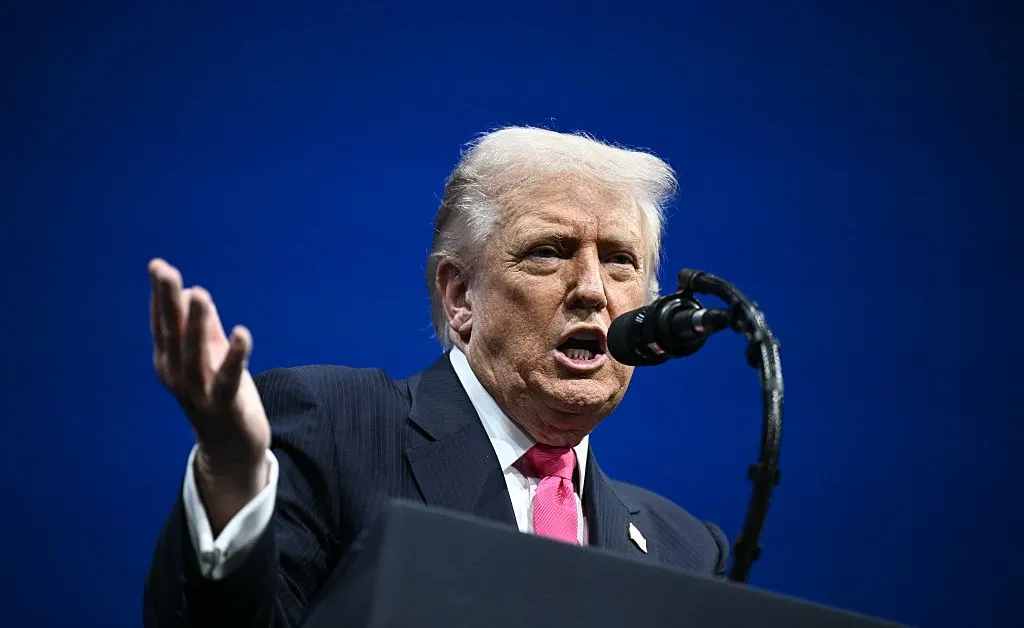The Energy & Commerce Oversight and Investigations Subcommittee’s hearing on Nov. 19 about chatbot risks was a chilling reminder of the terrible human cost that comes from regulatory inaction on AI. Yet despite horrific incident after horrific incident, AI companies retain carte blanche to sell products with zero meaningful safety standards or oversight. No other industry is given such freedom to endanger people with total impunity.
[time-brightcove not-tgx=”true”]
So it is ghoulish that House Republican leadership chose the very same day to announce that they want to jam federal preemption, which would ban almost all state-level AI regulation, into the National Defense Authorization Act (NDAA). And president Donald Trump has reportedly gone back and forth on signing an executive order granting the federal government unilateral power over AI regulation.
A broad range of states including Utah, Texas, and California have already stepped up with important AI regulation that would be eviscerated by preemption. Voters in these and other states deserve better. And if Congress is going to drag its feet on enacting meaningful safeguards to protect families, it is outrageous, undemocratic, and dangerous to prevent state lawmakers from stepping up in their place.
This is deeply problematic in three ways. First, it dramatically limits the ability of states to enact commonsense regulations to protect our children, our communities and our jobs from the depredations of large tech companies. There is no reason to trust Big Tech to take the concerns of parents and workers seriously in their rush to extract as much money as possible with their increasingly dangerous AI products. In fact, they are designed, economically and culturally, to “move fast and break things.”
Second, prohibiting AI regulation goes against the will of the American people. Poll after poll has shown that support for reasonable AI guardrails is deeply popular on the right and the left. What’s particularly heartening is the number of Republican voters calling for such protections. Recent polling shows that more than 70% of both Republicans and Democrats want robust AI regulation. This was exemplified the last time Congress considered preemption in July: the Senate rejected the idea by an astounding 99-to-1 vote. Even the Senator who offered the amendment ultimately voted against his own proposal. So why continue to force the American people to swallow something so unpopular?
Third, jamming a haphazard preemption provision into the NDAA at the last minute makes a mockery of our democratic process, as this proposed provision was never debated by the House or the Senate. The American people deserve strong, reasonable AI safeguards. President Trump’s stated goal is to establish one federal standard protecting Americans and fostering innovation. Yet the right way to develop such a standard is through the normal legislative process. Big Tech and its supporters in Congress are trying to short circuit our normal democratic and legislative procedures. Instead of holding a meaningful debate that leads to a well-balanced federal standard, Congress is being asked to consider and vote on this momentous issue in the space of a single week. Further, it is important to note that this type of maneuver also puts our troops at risk, holding the NDAA hostage to the desire of Big Tech to avoid regulation.
Proponents of such a ban cite the need for a strong, federal law for AI, rather than a “patchwork” of state-level AI laws. This argument could merit consideration if there was, in fact, any federal law on AI. In reality, such a ban would simply codify Big Tech’s free pass to roll out dangerous AI systems as fast as possible, to make as much money as they can, with little regard for public safety.
Supporters also argue that regulation could have a “chilling effect” on AI innovation, but this has no basis in experience. All other companies are forced to meet basic safety standards, from airlines to pharmaceutical companies to your local sandwich shop. Yet, U.S. innovation is the envy of the world. Companies compete to innovate and make profits; the public sector steps in to stop people getting hurt. To make such a rank exception for the AI industry is nothing less than corporate welfare, and should be treated as such.
Earlier this year, leaked internal policy documents from Meta explicitly stated it was acceptable for their chatbots to “engage a child in conversations that are romantic or sensual.” At least seven families are now suing ChatGPT for the ways in which they believe the large language model was involved in the deaths of their children. Kumma the Bear, the latest OpenAI-enabled toy, has been pulled from shelves after it gave advice on sex positions and where to buy knives. It’s not hard to see why the vast majority of Americans want AI regulation to protect kids and more.
The mystery is why some of those in Congress do not.
The post Banning AI Regulation Will Endanger American Kids appeared first on TIME.




